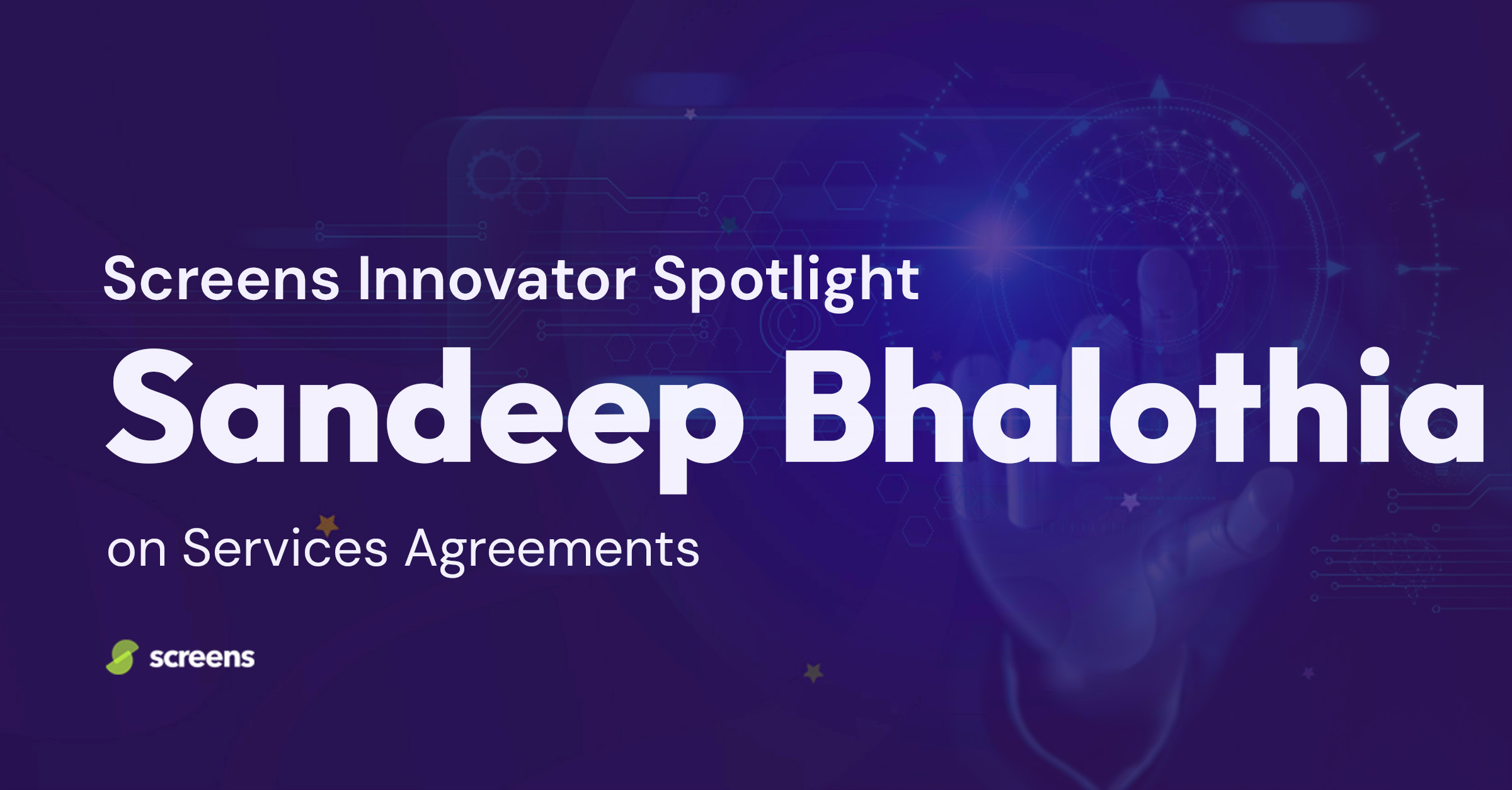Contracts That Win: Critical Standards for Service Agreements

An Unconventional Path to Law
Sandeep Bhalothia's journey into law is a story of unexpected twists and bold choices. Initially drawn to computer science, Sandeep's path shifted when a friend encouraged him to consider law as an alternative career.
"I became a lawyer by accident because my entire family comes from an armed forces background and I'm the first person in my extended family to work in the private sector," he recalls. This newfound curiosity led him to law school in India, and just days after graduation, he made the leap to the UAE, where he has been practicing for six years.
AI in Legal Practice: A Balanced Perspective
Sandeep's attitude towards AI in legal practice is one of cautious optimism. He recognizes the potential of AI to streamline processes that save time, like contract review and redlining, but also values the irreplaceable role of human expertise. His experience with various AI platforms, ranging from expensive enterprise solutions to affordable subscriptions, has given him a nuanced understanding of their capabilities and limitations.
During his exploration of various contract review platforms, Screens.ai caught Sandeep's attention for its unique ‘hybrid AI’ approach, which reflects a combination of artificial intelligence and human expertise. “I'm not just trusting the AI-powered screen, I’m trusting the human expert who built it," Sandeep explains.
The Critical Role of Service Agreements
In Sandeep's legal practice, particularly in the Middle East, service agreements play a crucial role. These agreements, which cover a wide range of business relationships, are a constant in the day-to-day operations of in-house legal teams. They often come from various departments such as marketing, support, and finance, each requiring careful review and negotiation. Sandeep surveyed his followers on LinkedIn and discovered that 82% said Service Agreements were the types of contracts they reviewed the most.

The volume and frequency of these agreements can be overwhelming for legal teams, especially in startups and early-stage companies. Sandeep recognized that efficiently handling these agreements could significantly impact a company's legal operations and resource allocation. Some of the most important clauses include:
- Protection and Clarity: Defines scope, responsibilities, and expectations, preventing misunderstandings and disputes between parties.
- Risk Management: Limits liability, specifies insurance requirements, and outlines dispute resolution procedures.
- Intellectual Property Protection: Addresses ownership of IP created during service provision, safeguarding both parties' rights.
- Confidentiality Safeguards: Includes provisions to protect sensitive business information shared between parties.
- Payment Terms: Clearly outlines compensation, payment schedules, and potential penalties, ensuring financial clarity.
- Change Management: Provides procedures for modifying terms as needs evolve, maintaining flexibility within a legal framework.
- Quality Standards: Establishes benchmarks for service quality, ensuring client satisfaction and provider accountability.
- Termination Clauses: Specifies conditions and procedures for ending the agreement, protecting both parties' interests.
- Compliance Assurance: Ensures services meet relevant legal and regulatory requirements in the applicable jurisdiction.
- Dispute Resolution: Outlines processes for addressing disagreements, potentially avoiding costly litigation.
Creating a Legal Playbook
Seeing the potential to address this common pain point, Sandeep decided to create a screen for service agreements on the Screens.ai platform. His goal was to transform the manual process of reviewing these agreements into a more automated, efficient system. "After working on service agreements for a couple of years, we had our own kind of cheat sheet. We know what kind of specific clauses we want included and what our acceptable standards are while working in-house. When I looked at Screens, I thought, if we transfer that manual knowledge into a digital playbook, it will save a lot of time," Sandeep explains.
By combining AI capabilities with human expertise, Screens.ai is opening new possibilities for efficient, reliable legal work. For lawyers and legal teams looking to scale their contracts expertise, Sandeep's journey offers valuable insights into the potential of AI-assisted legal tools and the importance of human-centric approaches in legal tech.
To learn more about Sandeep and his contracts expertise, visit Node.law, connect with him on LinkedIn, and check out his Services Agreement screen in the Screens Community.




